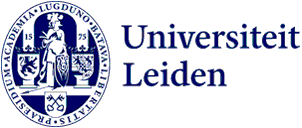PhD research: 'Put victims’ rights first when dealing with labour exploitation of migrants'
Labour exploitation of migrants is considered to be a form of the criminal offence of human trafficking. Partly because of this, the legal position of the victims is subordinate to the criminal proceedings. This can and must change, says Gerrie Lodder in her dissertation. PhD defence on 21 April 2022.

An exploiting asparagus grower in Someren, Polish mushroom pickers whose working hours are systematically reduced, and abuses in the meat industry: labour exploitation of migrants has been a well-known phenomenon for decades. ‘Labour migrants are indispensable in our current economy. They often do work for which the national labour force is not motivated, like cleaning, working in agriculture and horticulture or in the meat industry. These labour migrants, though necessary for our society, are by no means always treated well', says Gerrie Lodder, lecturer and researcher at the Institute of Immigration Law.
Since the Palermo Protocol came into force in 2000, labour exploitation has been considered a form of the criminal offence of human trafficking. This has given an impetus for attention and an approach to labour exploitation, but has also led to a focus on the most serious forms of exploitation and on prosecuting the perpetrators. ‘Although the criminal approach also pays attention to the protection of the victim, the legal position of the victims is subordinate to the criminal proceedings', says Lodder. ‘Victims' rights are to a large extent linked to and dependent on the criminal proceedings. My research focuses on the rights of migrants to protection from labour exploitation’.
Different definition
In her dissertation, Lodder uses a different definition of labour exploitation. ‘As it is particularly difficult in practice for migrants to realise their rights against the employer, I focus on the rights a migrant has against the State for protection against labour exploitation. Labour exploitation is defined here as a violation of labour standards laid down in different areas of law. This is a more inclusive definition than is used in the criminal justice approach.’
Based on an analysis of human rights, criminal law, the right to freedom of movement and migration law, the study examines how migrants are protected from labour exploitation. It takes stock of the rights that migrants can derive from these four areas of law and analyses how access to these rights should be facilitated by the State. ‘In doing so, I first examined the labour standards in the four areas of law that govern the treatment of a migrant by an employer. Then I identified the rights that could preventively strengthen a migrant's position in relation to an employer, such as the right to a residence permit and the right to change employers. Finally, I looked at the rights a migrant has in a situation of labour exploitation.’
The rights to protection by the State that migrants can derive from the four areas of law differ greatly, says Lodder. ‘In the Netherlands, criminal law appears to offer the most protection, but at the same time it limits protection because of the way in which labour exploitation is defined and the linking of rights to the criminal proceedings.’ According to the researcher, the great inequality in protection against the different forms and degrees of labour exploitation is undesirable. 'Practice shows that no clear dividing line can be drawn between the different forms of labour exploitation. It makes sense to draw a hard line in the rights that migrants have in the event of a violation of the various labour standards.’
'It’s been a long process. I did underestimate that.'
The dissertation is based on articles that have been edited to a greater or lesser extent and placed in an overarching theoretical framework. ‘In this way, you cut the process into more manageable pieces and at least can publish in the intervening period. What’s more, with articles you can reach a broader public than with a dissertation that is only published in book form.’ But there are also disadvantages. ‘Throughout the process, you gain more and more insights into the topic; these insights cannot be added to articles that have already been published. A certain amount of overlap is inevitable between the articles. That’s not a problem as long as these are just separate articles, but it is problematic when the articles are bundled to become one publication. Finally, there’s still little experience within the field of legal science with doing a PhD on the basis of articles. As a result, it’s not entirely clear what requirements are set for this: what may and may not be amended, when is it an example of a dissertation on the basis or articles, and when is it not?’
All in all, Lodder looks back on an interesting but lengthy period of PhD research. ‘The subject is topical, which makes it special to be involved in. I wrote this thesis alongside my regular work as a lecturer and researcher, and I chose a subject that was new to me at the time. This meant that the available time to work on my dissertation was limited. Looking back, it’s been a long process. I did underestimate that.’
This is an article about the dissertation 'Recht doen of recht hebben' (Doing justice or having rights) written by Gerrie Lodder. The PhD research was supervised by Professor P.R. Rodrigues and Professor P.F. van der Heijden.
